
Explore the intricate relationship between mental health and sports in this enlightening blog. Uncover the challenges athletes face, the transformative power of sports, and the evolving landscape of mental health support. Join the journey towards holistic well-being and discover how sports act as a magic wand, promoting resilience and mental flourishing.
In this blog we’ll cover
- Section 1: The Mental Health Mosaic
- 1.1 Understanding Mental Health:
- 1.2 Prevalence of Mental Health Challenges in Athletes:
- Section 2: The Transformative Power of Sports
- 2.1 Physical Activity and Mental Well-Being:
- 2.2 Building Resilience Through Sports:
- Section 3: Shadows on the Field
- 3.1 Pressure, Expectations, and Mental Health:
- 3.2 The Role of Coaches and Organizations:
- Section 4: Triumphs and Positive Paradigms
- 4.1 Athletes as Mental Health Advocates:
- 4.2 Integrating Mental Health Support:
- Section 5: Strategies for Holistic Well-being
- 5.1 Mental Health Education for Athletes:
- 5.2 Creating a Supportive Environment:
- 5.3 Sports being the magic wand:
- And more...
Section 1: The Mental Health Mosaic
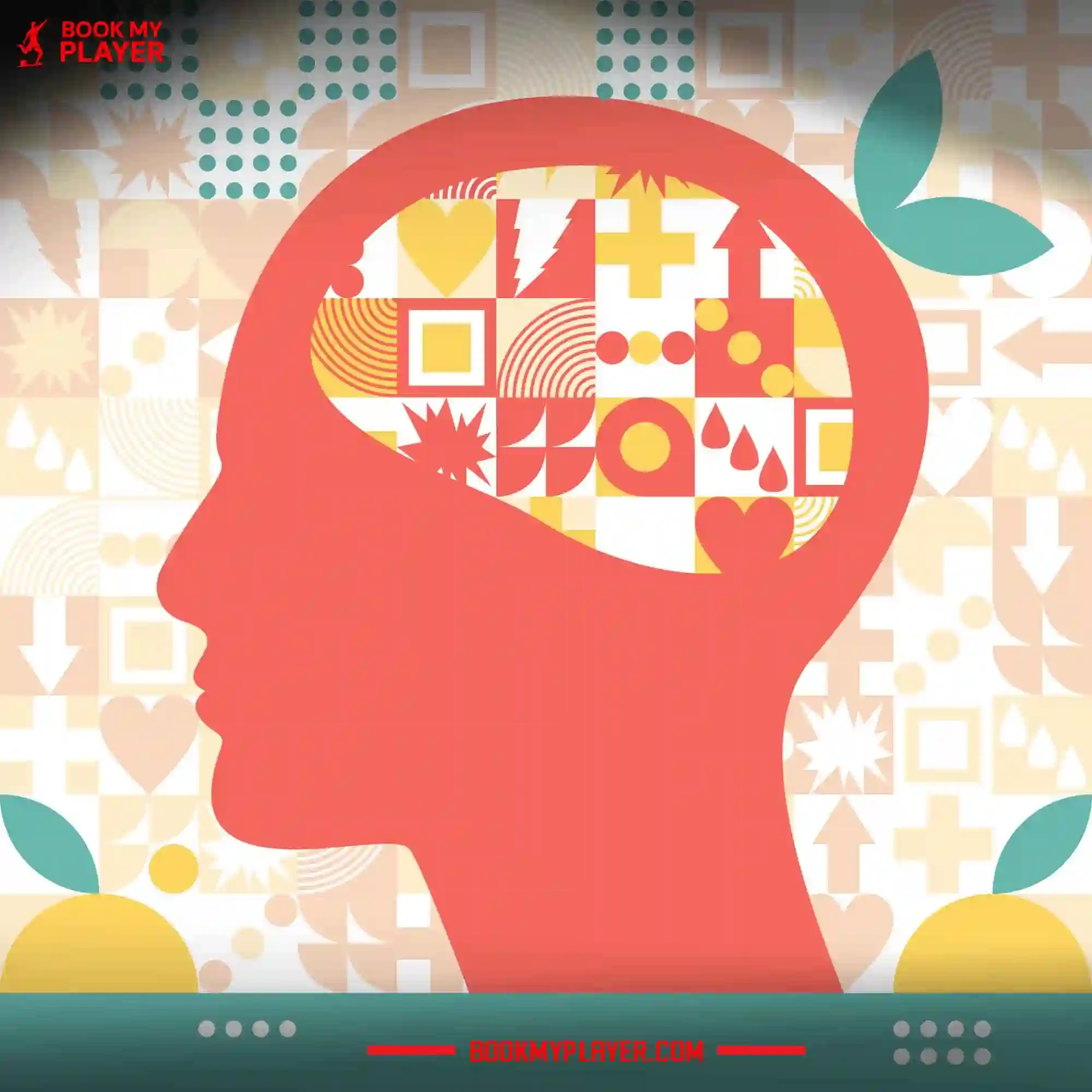
1.1 Understanding Mental Health:
Mental health is a cornerstone of overall well-being, encompassing emotional, psychological, and social aspects. Defying misconceptions, it's imperative to recognise the profound impact mental health has on an individual's ability to navigate life's challenges.
1.2 Prevalence of Mental Health Challenges in Athletes:
The unique pressures athletes face, from performance expectations to the rigours of competition, make them susceptible to mental health issues. By acknowledging and addressing these challenges, we can begin to dismantle the stigma surrounding mental health in the sports world.
Section 2: The Transformative Power of Sports
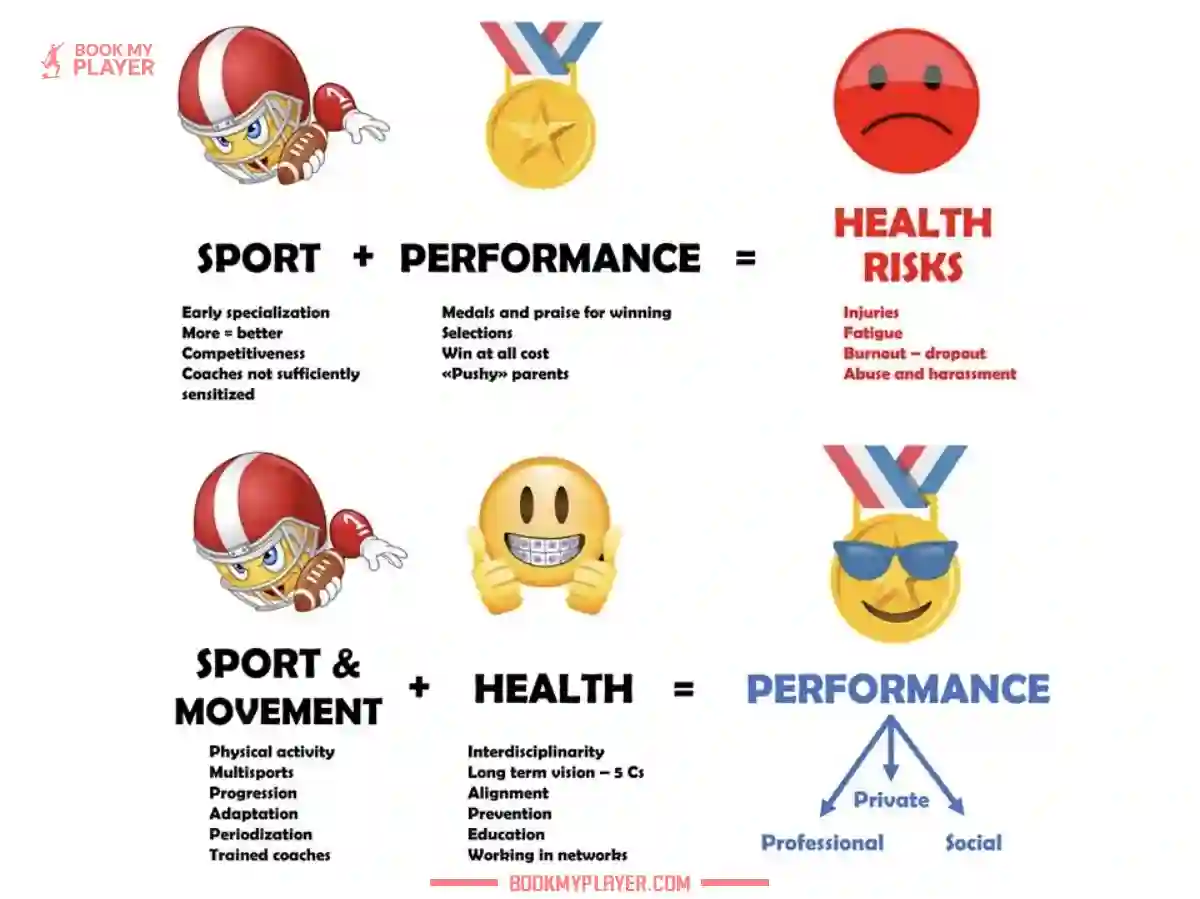
2.1 Physical Activity and Mental Well-Being:
The symbiotic relationship between physical activity and mental health is well-documented. Engaging in sports triggers the release of endorphins, neurotransmitters that act as natural mood lifters, creating a positive feedback loop between physical and mental well-being.
2.2 Building Resilience Through Sports:
Participation in sports cultivates resilience by teaching athletes to navigate setbacks, adapt to change, and cope with stress. Real-life stories of athletes who've triumphed over adversity serve as testaments to the transformative power of sports in building mental fortitude.
Section 3: Shadows on the Field

3.1 Pressure, Expectations, and Mental Health:
While sports can be a source of empowerment, the relentless pressure and expectations can exact a toll on an athlete's mental health. Delving into the psychological stressors, we explore the delicate balance between striving for excellence and protecting mental well-being.
3.2 The Role of Coaches and Organizations:
Coaches and sports organizations bear a responsibility to safeguard the mental health of their athletes. By fostering a culture of open communication and providing adequate support, they can create an environment conducive to both athletic success and mental well-being.
Section 4: Triumphs and Positive Paradigms
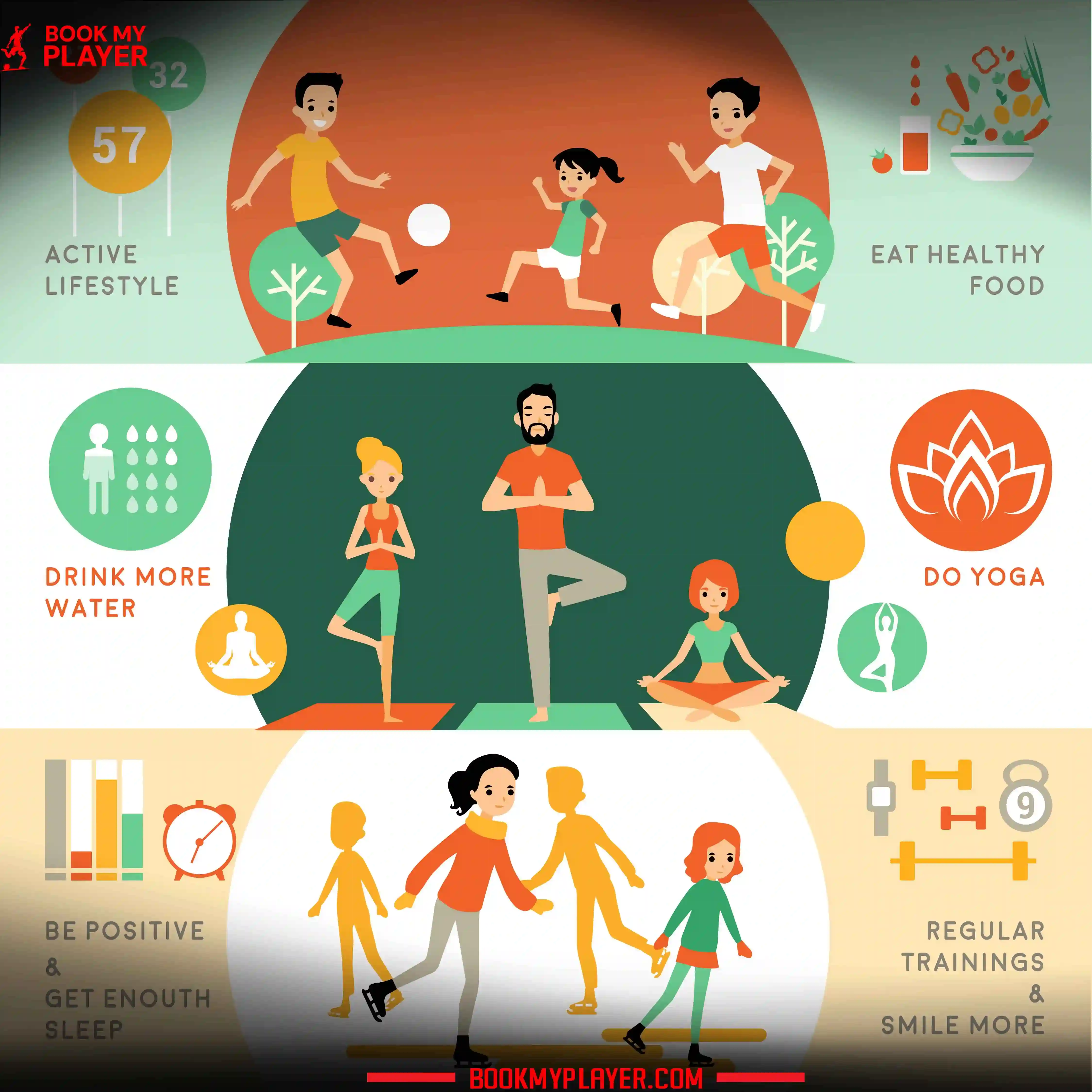
4.1 Athletes as Mental Health Advocates:
A paradigm shift is occurring as athletes step into the spotlight not just for their physical feats but also for their advocacy for mental health. By sharing personal struggles, these athletes dismantle stereotypes, fostering a climate of acceptance and understanding.
4.2 Integrating Mental Health Support:
Highlighting successful programs and initiatives, we explore how sports organizations are proactively addressing mental health. From tailored psychological support to holistic athlete development plans, these strategies showcase the evolving landscape of mental health in sports.
Section 5: Strategies for Holistic Well-being

5.1 Mental Health Education for Athletes:
Embedding mental health education into sports training programs equips athletes with the tools to navigate the psychological demands of their careers. Understanding the nuances of mental health fosters a proactive approach to well-being.
5.2 Creating a Supportive Environment:
A supportive sports culture is fundamental to athlete well-being. Examining the pivotal roles of teammates, coaches, and staff, we delve into how fostering a culture of empathy and understanding can pave the way for a more supportive environment.
5.3 Sports being the magic wand:
Engaging in sports acts as a therapeutic remedy for mental health challenges and provides a constructive outlet for navigating failures. Physical activity triggers the release of endorphins, promoting a sense of well-being and reducing symptoms of stress and anxiety. The structured nature of sports fosters discipline, goal-setting, and teamwork, instilling a sense of purpose and accomplishment. Additionally, the resilience cultivated through facing challenges in sports translates into valuable coping mechanisms for handling failures. Athletes learn to embrace setbacks as opportunities for growth, developing a mindset that views failures not as defeats but as stepping stones toward improvement. The camaraderie and support within sports communities further contribute to a sense of belonging, offering a vital network during tough times. In essence, the holistic benefits of sports extend beyond the physical realm, serving as a powerful tool for mental health maintenance and equipping individuals with the resilience needed to confront and overcome failures.
And more...
In the intricate dance between mental health and sports, athletes are not merely competitors but individuals navigating a multifaceted journey. By acknowledging, addressing, and embracing the symbiotic relationship between mental well-being and athletic performance, we pave the way for a future where sports become not just a stage for physical prowess but a catalyst for holistic human flourishing.
Tags
Comments (0)
Weekend Reads
Mastering the Game: 10 Essential Tips for Amateur Athletes in India
January 8th, 2024 6:41 AM UTC
The Rise of Mixed Martial Arts: From Underground to Mainstream
January 3rd, 2024 12:36 PM UTC
Evolution of Football in the NCR
January 2nd, 2024 2:25 PM UTC
The Kings of 64 Squares: Unveiling the Chess Grandmasters of India
December 25th, 2023 6:59 PM UTC
Captaincy Chronicles: Dive into Mumbai Indians' Dynamic Shift!
December 25th, 2023 6:51 PM UTC
Rising from Athletic Setbacks: A Journey of Resilience and Triumph
December 25th, 2023 6:39 PM UTC
Doubles Dynamism: Charting the Course of Emerging Stars in Indian Badminton
December 25th, 2023 6:22 PM UTC
The Unbreakable Bond: Witnessing the Symbiosis Between a Coach and an Athlete
December 25th, 2023 6:10 PM UTC
Jwala Gutta's Game-Changing Move: Celebrating Sindhu, Empowering Future Cricket Stars
December 25th, 2023 5:31 PM UTC
Most Reads
Sanju Samson's Redemption: From Setbacks to Centuries
December 25th, 2023 5:17 PM UTC
Evolution of Football in the NCR
December 25th, 2023 6:00 AM UTC
Sonu Jaglan's Spectacular Performance Leads Gujarat Giants to Victory in Pro Kabaddi League Showdown
December 13th, 2023 8:14 PM UTC
The Future of Sports Technology: Enhancing Athlete Development in the Digital Age
December 13th, 2023 8:08 PM UTC
Strategic Planning for Collegiate Athletics: A Roadmap for Aspiring College Athletes
December 13th, 2023 7:56 PM UTC
Mental Toughness in Sports: Cultivating Resilience for Long-Term Success
December 13th, 2023 7:42 PM UTC
Inclusive Athletes: Ensuring Long Term Development Opportunities For All
December 13th, 2023 7:34 PM UTC
The Role Of Nutrition In Athletic Longevity:A Comprehensive Guide For Athletes
December 13th, 2023 7:16 PM UTC
Balancing Academics and Athletics: A Guide for Student-Athletes and Their Families
December 13th, 2023 7:00 PM UTC
Most Popular
Local Sports Events and Tournaments
February 29th, 2024 12:07 PM UTC
Women in Indian Sports
February 29th, 2024 11:32 AM UTC
Fitness and Health Tips for Athletes: Expert Advice for Peak Performance
February 22nd, 2024 1:38 PM UTC
Revolutionizing the Game: The Future of Sports Training in India with VR and AI Technologies
February 19th, 2024 12:54 PM UTC
Emerging Sports Leagues in India: A New Arena of Athleticism and Engagement
February 17th, 2024 10:40 AM UTC
Rising Sports Stars in India: Unveiling the Future Champions
February 15th, 2024 5:29 PM UTC
Unleashing the Power of Raiders: The Heartbeat of Pro Kabaddi League
February 15th, 2024 6:46 AM UTC
Running Through History: The Delhi Marathon 2024 Experience
February 14th, 2024 11:58 AM UTC
Navigating Success: The Case for Hiring a Personal Coach
January 19th, 2024 5:14 PM UTC
Beyond Boundaries: Unveiling India's Sporting Tapestry with Hidden Gems
January 19th, 2024 5:11 PM UTC
Shattering Glass Ceilings: A Journey Through the Triumphs of Women in Sports
January 17th, 2024 7:00 PM UTC
Decoding the Game: Unveiling the Intricacies of Players' Agents
January 17th, 2024 2:02 PM UTC
Unveiling the Art: Breaking Down the Basics of Boxing for Beginners
January 16th, 2024 8:57 AM UTC
Elevating Performance: The Symbiotic Relationship Between Mental Health and Sports
January 16th, 2024 3:50 AM UTC
Game-Changers: The Evolution of Sports Through Wearable Technology
January 14th, 2024 4:43 AM UTC
Unveiling the Power Duo: Strength Training vs. Cardio for Optimal Fitness
January 12th, 2024 4:43 AM UTC
The Transformative Power of Yoga and Meditation in Sports Performance
January 11th, 2024 6:37 PM UTC
Beyond Sweat and Grit: Unveiling the Future of Sports Training through Technological Mastery
January 9th, 2024 7:28 PM UTC
Unlocking Athletic Potential: The Crucial Role of Post-Workout Recovery
January 9th, 2024 12:00 PM UTC





















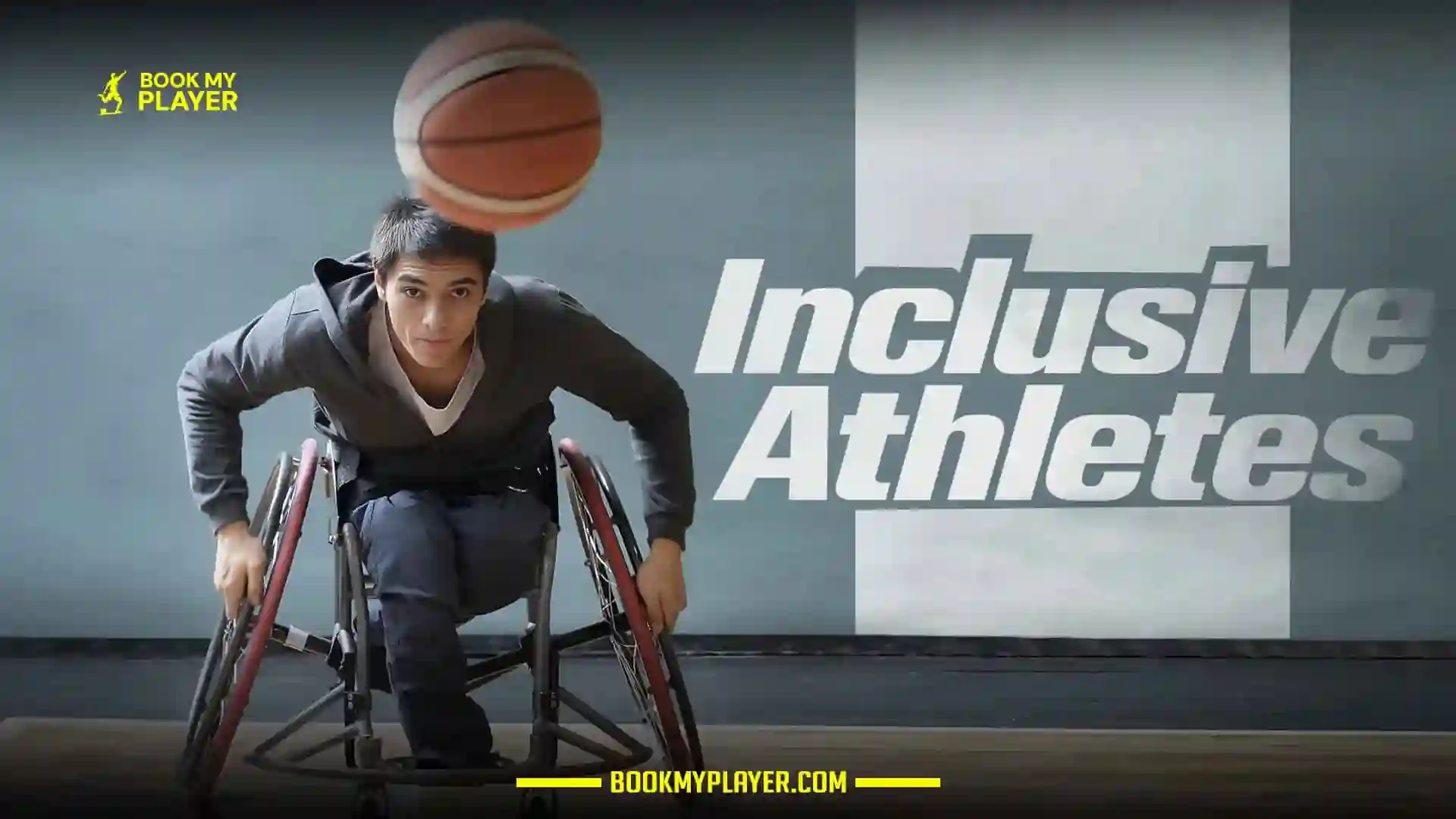






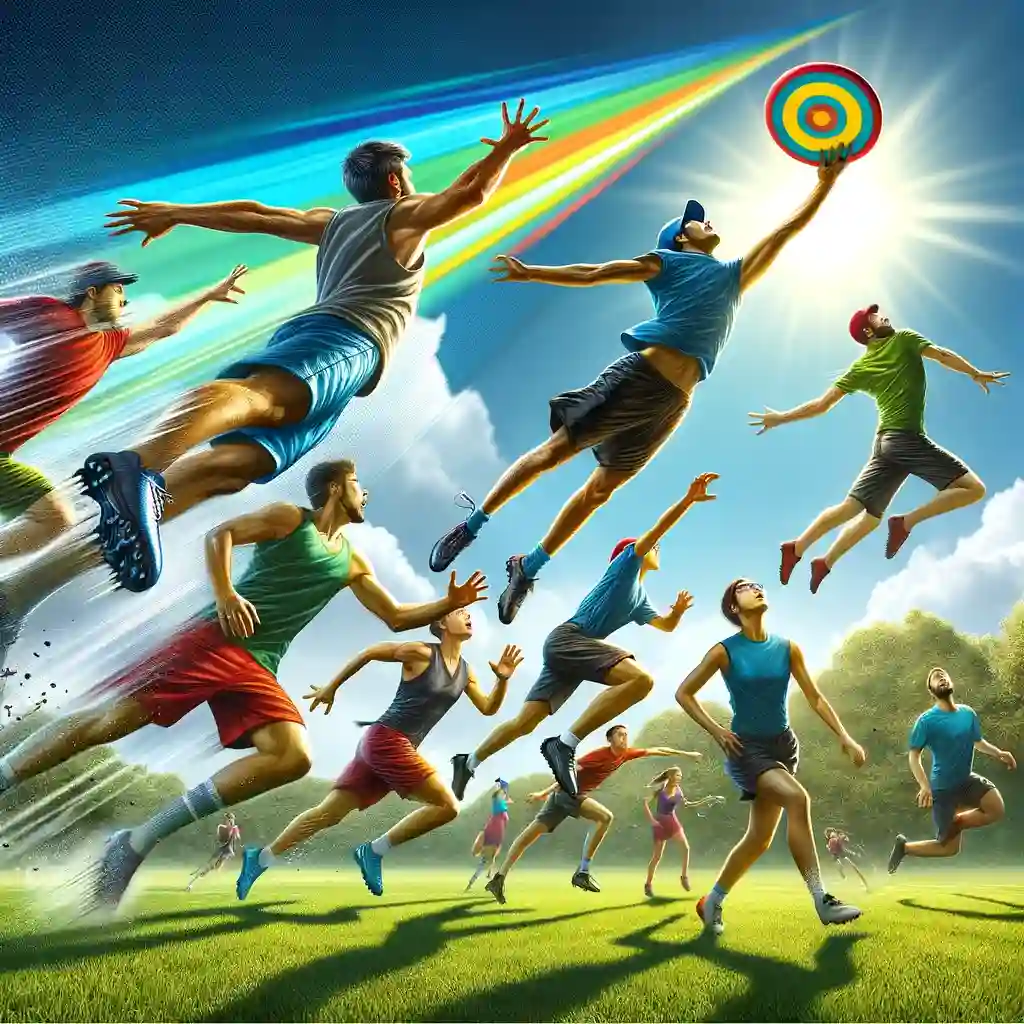













Leave a Comment